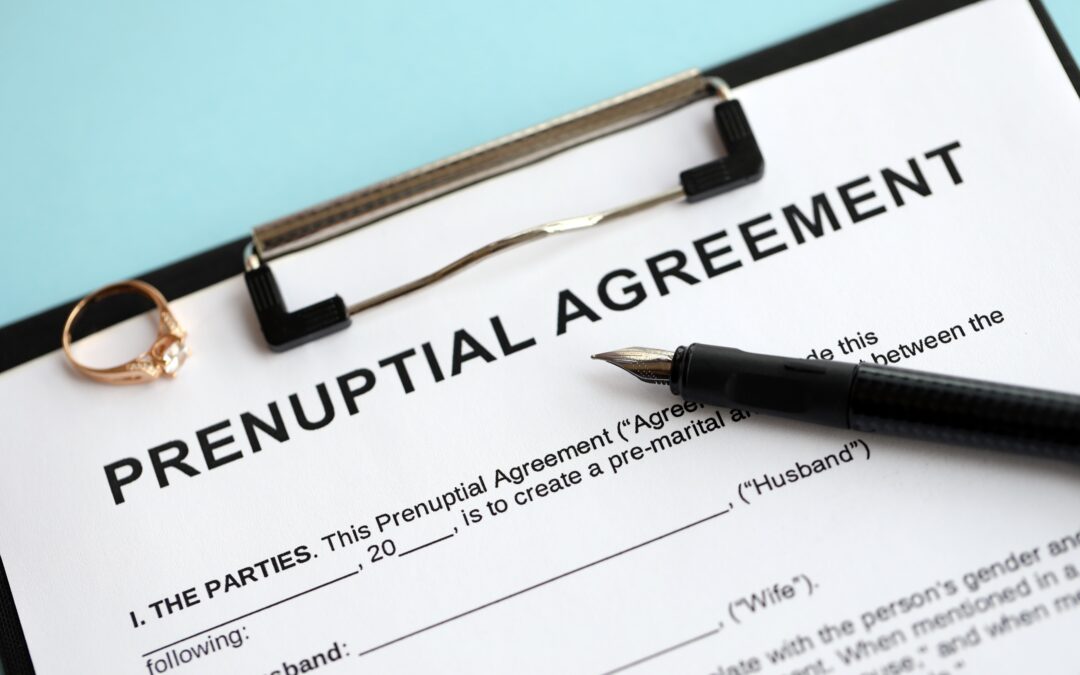A prenuptial agreement is an excellent tool to help couples address financial issues before they marry. Contrary to popular belief, a prenup is not just a vehicle for very wealthy people to protect their assets in case of divorce. While there are many benefits to prenups that couples should explore, including learning how to have difficult conversations, that doesn’t mean that you should sign a particular prenup that is presented to you by your fiancé. If you are uncomfortable with the contents of the prenuptial agreement, you must address those concerns before you sign. If you don’t, it could have adverse personal and financial consequences.
Why Should You Get a Prenuptial Agreement?
Prenups encourage couples to discuss their finances and values and goals surrounding money. The parties must fully disclose their income, assets and debt. In this way, both parties are fully informed about their individual and joint financial situation, express to each other how they each see and want to conduct their financial lives, make appropriate decisions about how they want to handle their finances during marriage and determine what happens if the marriage ends because of divorce or death.
In addition, couples can address issues like protecting a family inheritance, designating certain assets as separate and setting aside money for children from a prior relationship. If a divorce does result, the parties can avoid a protracted battle because they would have already established in the prenup how they want to divide assets and provide spousal support in that event.
Can You Negotiate a Prenuptial Agreement?
A prenup should be treated like any other contract and be carefully reviewed and negotiated as needed. Both parties should have their own attorney to advise them regarding their rights and obligations under the prenup and New York law. An attorney can also ensure that the language of the prenup accurately reflects the parties’ wishes.
Reviewing and negotiating the prenup should be treated seriously. Under New York law, a prenup will be enforced by a judge even if it is unfair to one side, provided the parties had ample time to review, negotiate, contemplate and understand the terms of the agreement and speak to an attorney before the document was signed. There are a few exceptions when an agreement is unenforceable but they can be hard and expensive to prove. As a result, you could be stuck with a terrible settlement if you signed a prenup without proper guidance.
What Should You Do If You Are Uncomfortable Signing a Prenuptial Agreement?
If your fiancé has given you a prenup, you should hire an attorney to review it even if the terms seem fine to you. Most likely, you are unfamiliar with New York law and may be signing away rights that you didn’t know you had or obligating yourself in a way you didn’t anticipate.
If you are uncomfortable with the terms of the prenup, there is more of a reason to go get legal advice. You should always trust your instincts.
Your fiancé should understand that you have questions and want to speak with a lawyer. If he or she is dismissive or unwilling to negotiate the terms, you should question whether you want to marry that person. Unfortunately, if you give in to your fiancé’s wishes, you may be setting a precedent for an imbalance in your relationship that will continue throughout your marriage which ultimately will fester and create problems.
In the end, a prenup handled correctly can make a marriage stronger by getting couples to have open and honest discussions about money and property while finding ways to address conflicts cooperatively. If you are starting your marriage by signing a document that you aren’t sure is fair to you, it’s going to damage your relationship.
If you are considering a prenuptial agreement, contact us for a consultation.

